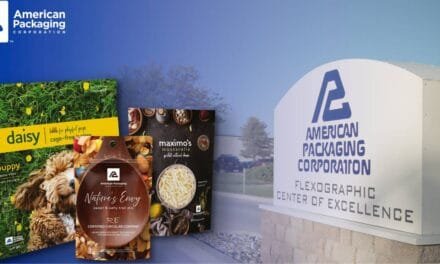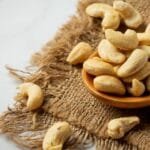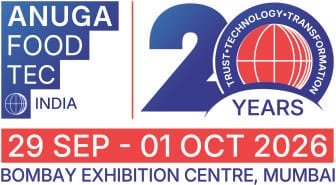Kensing is making waves in the natural vitamin E space with the international debut of Sun E. This eco-conscious product is a clean-label, non-GMO tocopherol derived from upcycled sunflower oil by-products.
Kankakee, IL – Kensing LLC, a leading phytochemical producer, diversifies its plant-based vitamin E portfolio with Sun E® following its recent acquisition of AOM (Advanced Organic Materials). Kensing is introducing the upcycled, natural vitamin E brand to new markets internationally. Taking a holistic approach, Sun E® is a clean-label, non-GMO tocopherol derived from sunflowers that reduces waste and minimizes the environmental impact.
“Sun E is sourced exclusively from an upcycled side-stream of sunflower oil production,” says Serge Rogasik, CEO of Kensing. “We create tangible value by harnessing the full potential of a precious by-product of the food industry. Our approach not only maximizes process efficiency but also significantly contributes to sustainability by ensuring nothing goes to waste. This pure and potent addition to Kensing’s vitamin E portfolio will strengthen the company’s position as a leading global producer of natural vitamin E.” Acting as an exemplary model of sustainable no-waste sourcing, Sun E® raw materials are procured from sunflower fields that are cultivated to serve the edible oils industry.
Kensing’s facilities are strategically stationed near some of the largest sources of sunflower seed processing, minimizing the environmental footprint. The company operates four manufacturing facilities and warehouses in North America, South America (Argentina), and Europe (Spain) to maintain proximity to its customers and suppliers across the three continents. It has also implemented a system of production redundancy guaranteeing a secure and steady supply of its raw materials.
“Sunflowers are grown as a highly sustainable crop,” explains Rogasik. “They are naturally drought-resistant and require very little water thanks to their deep roots which allow them to draw water from a depth of up to 5 feet (1.5 meters). They also require minimal fertilizers or pesticides and actually promote soil health, making them not only attractive as a crop, but truly planet friendly. Not a single square meter of land is planted for our activity.”
Non-GMO, non-allergenic
Sunflower is a non-GMO crop worldwide, guaranteeing that any product derived from it is also non-GMO, therefore Sun E® is Non-GMO Project Verified. The ingredient is also non-allergenic, as sunflower-sourced products do not require specific allergen labelling.
Sun E® tocopherol is extracted from sunflowers without any chemical modification of the tocopherol molecule, earning its reputation as the most natural form of Vitamin E. It inherently boasts a natural RRR-α-tocopherol profile, the most biologically active form at a concentration up to 90% purity.
Force of Nature
Natural Vitamin E sourced from sunflower oil offers >2 times higher activity compared to synthetic alternatives. Synthetic forms of vitamin E contain only 12.5% of the isomers naturally absorbed by the body, leading to lower utilization of the vitamin. They are also excreted faster than the natural form, reducing their ability to reach and benefit tissues. Natural vitamin E comes from plant oils; synthetic E is typically derived from petroleum, coal tar, or acetylene.
“Not all vitamin E forms are equal,” adds Denis Bendejacq, Vice-President, global R&I at Kensing. “Biological activity is largely determined by the composition of tocopherols and their different isomers. The RRR-alpha isomer is the most bioavailable, and sunflowers are naturally rich in this isoform. Our body naturally concentrates RRR-tocopherols via a set of stereospecific receptors.”
Vitamin E is considered an essential fat-soluble vitamin that the body cannot synthesize on its own and therefore it can only be obtained from either a diet rich in plant oils or through supplementation. Touted for its beneficial role in protecting the skin, eyes, and cardiovascular system from the risks of oxidative stress, vitamin E is commonly integrated into oral supplements, topical skin care products, infant formulas, and as a natural food antioxidant. In addition to managing oxidative stress, studies have demonstrated that it is a key vitamin for women’s health with benefits that address multiple life stages from pregnancy through menopause.
Since its acquisition of AOM, Kensing has been vigorously working to promote Sun E® as an ideal solution for companies in the dietary supplement space seeking to align with demands for clean-label, sustainable ingredients. Sun E® is offered in various product formats suitable for an array of nutritional applications, including functional foods, dietary supplements, and personal care products. This ingredient provides a unique opportunity to leverage both topical and nutritional benefits for beauty-from-within.
Vitamin E is supported by the EFSA-approved health claim for its antioxidant activity and its contribution to the protection of cells from oxidative stress (EU Regulation No. 432/2012).
About Kensing:
Established in 2021, Kensing, LLC, is a leading manufacturer of a comprehensive range of specialty ingredients derived from vegetable oils, including plant sterols, natural vitamin E, anionic and amphoteric surfactants, and specialty esters. Headquartered in Kankakee, IL, Kensing’s high-quality, precisely formulated ingredients serve a diverse array of customers across the home and personal care, pharmaceuticals, nutrition, and agricultural markets. Its acquisition of AOM and Vitae Naturals has positioned Kensing as the world leading global provider of natural vitamin E and plant sterols.
Have a news or topic to share with industry? Write to us editorial@pfionline.com

















